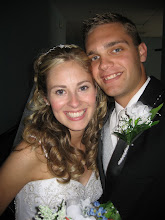-Kathleen Yancey
Intro
- "Words...will not stay still" (297)
- New technologies have contributed to the creation of new genres
- Yancey brings up a great point that no one is making "anyone do any of this writing" (298) ~That is in regards to production (blogs, videos, etc.) on the Web
Quartet 1
- Words and images work together
- The writing public has expanded
- They've learned "to write, think together, [and]to organize" (301), which is extremely important considering it was without "our" instruction. ("Our" is referred to as the composition instructors)
- Students and faculty have learned these genres on their own.
- Yancey notes, "we may already have become anachronistic" (302). It would be helpful to have this theme explained in class.
- Yancey is saying that numbers show the disappearance of English departments. (Not necessarily that they've gone away, just that they've merged into other departments)
- Today, more funding is going to students than what is going to public institutions. (It's becoming less about the country and more about the individual.)
- There is a linkage in between print literacy and screen literacy
- As quoted in Yancey, "No longer...can students be considered truly educated by mastering reading and writing alone" (305).
- (quote continued) "The ability to negotiate through life by combining words with pictures with audio and video to express thoughts will be the mark of the educated" (305). My thoughts are that Yancey must agree with this considering how she went about presenting this speech using words and pictures.
- Oral literacy + Print literacy = Third literacy
- Literacy should not be taught in composition classrooms but in media studies programs. (Let me digress for a minute here: It almost seems to me that this new curriculum that Yancey is trying to get at can be and in some ways is already being covered in current media courses. I feel this way because my undergrad was in communication/electronic media studies. Is it correct for composition/literacy classes to start taking on media and electronic writing courses? Obviously, Yancey is a biased source. It seems to me that communication departments might have more experience in dealing with what Yancey talks about in Quartet 3. I do agree that a new curriculum needs to be integrated; however, might it be more efficient for communication/media classes to take this on than general English/composition classes?)
Quartet 2
- Currently composition plays a key role as a first-year course...composition (as an actual course) becomes less and less important as a student continues in their education.
- Yancey calls that Gatekeeping vs. Gateway. (Yancey wants to focus on Gateway!)
- Yancey asks, "shall we teach print, digital, composition, communication, or all of the above?" (306). I think you know how I feel about this...read my comments above.
- "Many of us continue to focus on print" (307).
- Yancey says that composition already utilizes the "digital" (there just needs to be more structure...hence, three changes to composition curriculum)
Quartet 3
- Change 1: develop a new curriculum
- Change 2: revisit or revise our writing-across-the-curriculum efforts
- Change 3: develop a major in composition and rhetoric
- Discussion: stretch composition all along from first year through graduate studies. In composition there has always been and still is emphasis on the human relationship. Is the student and teacher relationship appropriate for what is going on in our world today with composition? This is specifically in regards to technology and the genre of electronic writing on the Web. While it would be beneficial, it's not manageable to evoke the one-to-one tutorial model. (constant teacher to student contact) If writing is social it should extend "beyond and around the single path from student to teacher" (311). Yancey's new curriculum says a lot about the appropriate way to transfer writing through various genres and put more focus on "real world." The 3 part new curriculum goes as follows: Part 1: Circulation of composition; Part 2: Canons of rhetoric; Part 3: Deicity of technology. Part 1: Circulation helps students learn the integrity of different fields and there genres. By dealing with new genres, there will also be reconstruction of texts. This new major would be called: Composition and Rhetoric. Part 2: Intertwining the domestic and disciplinary. Yancey uses laundered blankets in closet analogy. "What a shift in the means of delivery does is bring invention and arrangement into a new relationship" (317). Take a look at the difference b/t a book portfolio (singular) and a digital portfolio (plural). Part 3: "Words...whose 'meanings change quickly depending on the time or space in which they are uttered' or read" (318). Technological changes happen quicker than new literacies can emerge.
- Yancey says, while wrapping up the discussion of her new curriculum, "it will require a new expertise of us as it does of our students" (320). Hmm, a new expertise. You mean the one that communication professors are currently dealing with on a daily basis???
Quartet 4
- Should assessment begin to reflect technology?
- Yancey again restates her point about print and screen
What Should College English Be? (to discuss in class)
-AAK


No comments:
Post a Comment